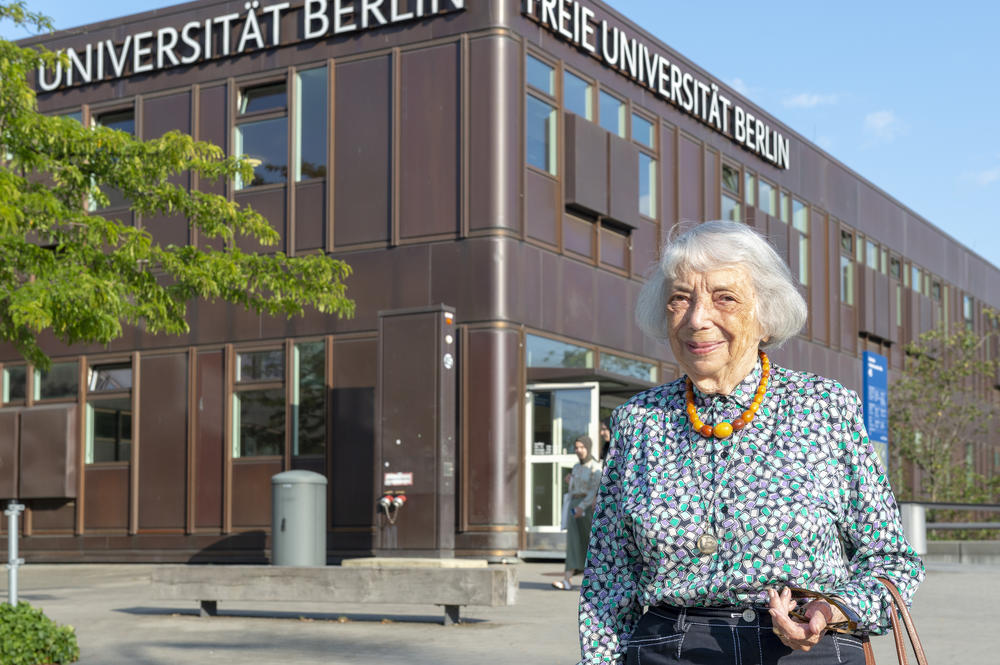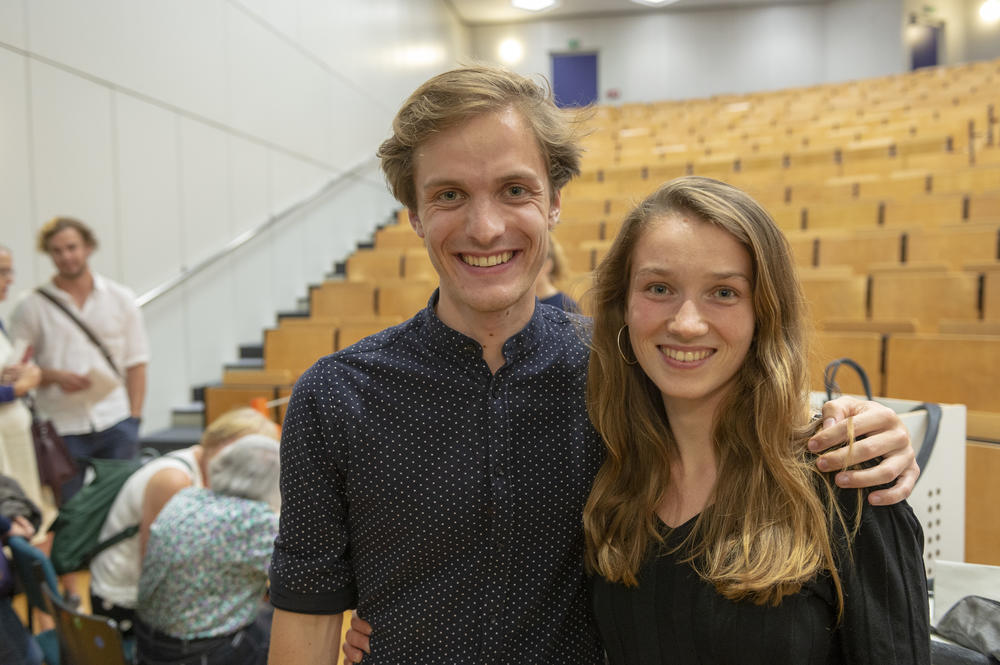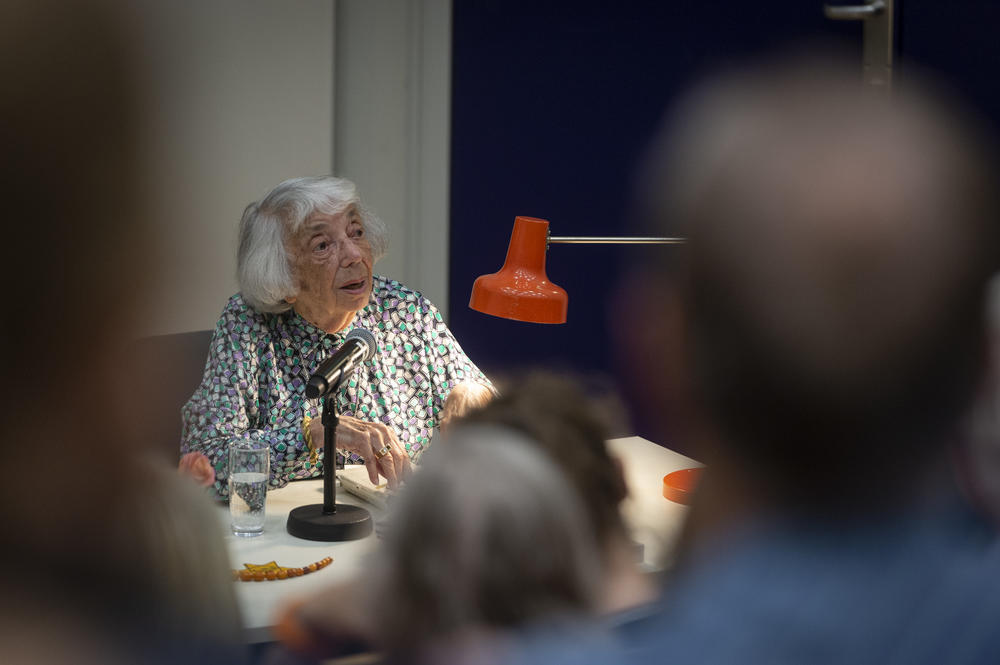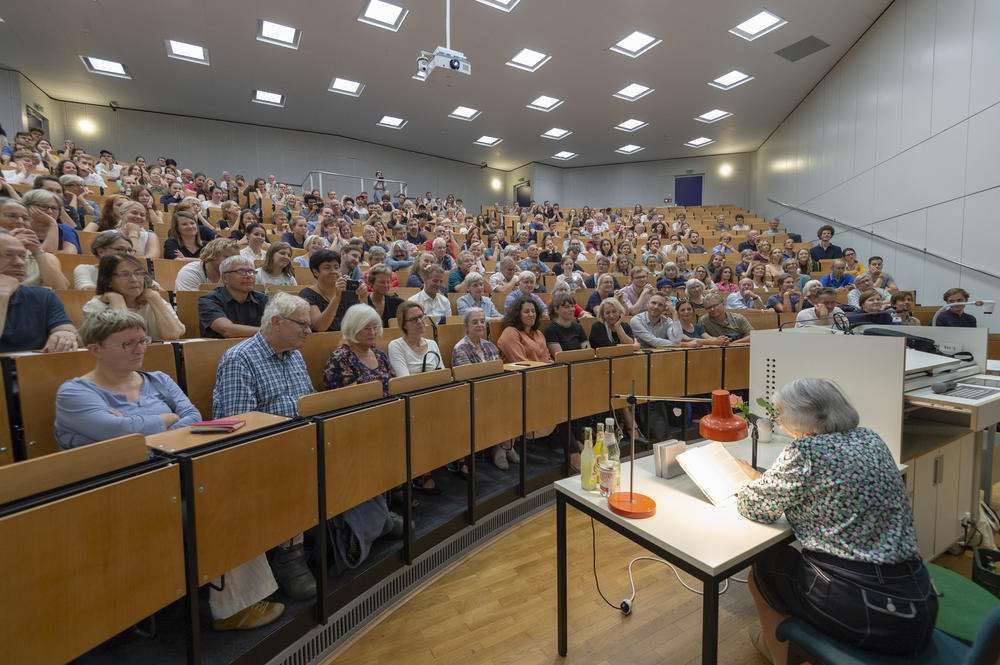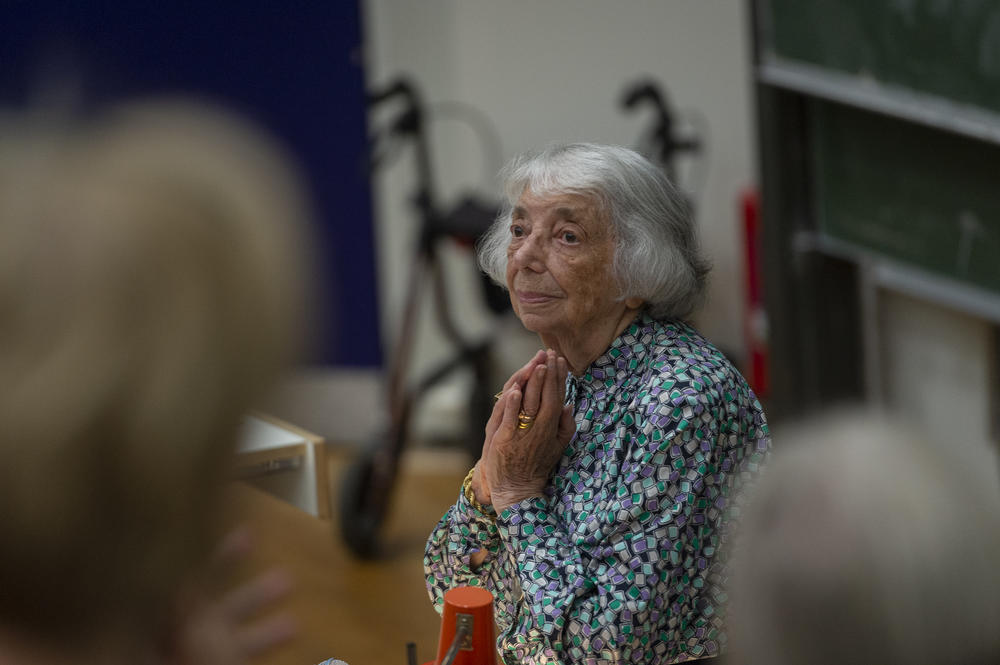“You need to take over as witnesses in our place”
Holocaust survivor 97-year-old Margot Friedlander accepted an invitation to read from her autobiography and speak with students at Freie Universität
Aug 22, 2019
Margot Friedlander visited Freie Universität to read aloud from her autobiography and speak with students.
Image Credit: Bernd Wannenmacher
“I came back to Germany to speak to you, to shake your hand, and to ask you to be the contemporary witnesses that we can no longer be,” said Margot Friedlander yesterday evening at Freie Universität. In an auditorium with more than 200 visitors, most of them students, Friedlander, who was born in 1921, described being a Jew in National Socialist Berlin.
“I was particularly impressed by this sentence,” says Vincent Bruckmann, a student of history and political science. Bruckmann had invited Margot Friedlander to visit Freie Universität, when he met her the year before at an event organized by the German Federal Agency for Civic Education. After her reading there, he asked her if she could imagine coming to Freie Universität.
Students Vincent Bruckmann and Janne Schleifer organized the presentation at Freie Universität.
Image Credit: Bernd Wannenmacher
Bruckmann said, “I felt a need to enable more people to experience this woman and hear her story, so that we could do the job she asked us to do. So we can make sure it doesn't happen again.” He was happy when she consented right away. “I thought the university would be a good location because Ms. Friedlander wants to reach young people.” Vincent Bruckman, 24, and Janne Schleifer, a student involved in the cultural department of the student representative organization AStA, financed and organized the reading. He moderated the ensuing discussion.
“Try to live your life,” (in German: „Versuche, dein Leben zu machen“) were the last words Margot Friedlander's mother left for her, passed on verbally by a neighbor. It is the title she chose for her autobiography, published in 2010 in German. Margot Friedlander, then still Margot Bendheim, tells how she had to hide in Berlin in the 1940s for 15 months after the Gestapo picked up her mother and brother. The 21-year-old removed the yellow Jewish star and put a chain with a cross pendant around her neck. She dyed her black hair red so that she would not be recognized as a Jew. She went into hiding – until in the spring of 1944 two Nazi collaborators stopped her on the street and asked for her papers.
Friedlander's narrative shifts between her experiences of belonging and abandonment. Separated from her mother and her brother, she is suddenly on her own. She experiences solidarity from helpers who grant her protection. Persecuted and deprived of her civil rights, she lives in constant fear of discovery.
Margot Friedlander spoke to an audience of more than 200, telling them about her life as a Jew in Nazi Berlin.
Image Credit: Bernd Wannenmacher
The two men led the young woman off because she didn't have identification papers. Friedlander reads: “On the way to the police station, I decided to tell the truth. 'I am Jewish,' I said. 'I am Jewish.' By saying it, I was reunited with the fate of my family and all other Jews. Whatever would happen to me now, I was no longer alone. The I had again become we.”
She was deported to the Theresienstadt ghetto, a transit camp for sending people further east, to their death. In Theresienstadt she met her future husband, Adolf Friedländer, whom she already knew from Berlin. Both survive. After the Red Army liberated them, they heard the name “Auschwitz” for the first time and saw the half-dead, emaciated bodies that rolled into Theresienstadt on trains from further east.
Margot Friedlander's message to those present: “I have a mission. I don't speak for myself. We can no longer change what was. But it must never happen again. Never again. For you, only for you.”
Image Credit: Bernd Wannenmacher
In 1946 Margot Friedländer emigrated to the United States with her husband. The name Friedländer became Friedlander. After the death of her husband in 1997, she began to write down her memories, which were made into a documentary film in 2004. For the filming, she returned to her hometown for the first time – and immediately felt like a Berliner again. After visiting Germany several times for readings from her book, she decided to stay. In February 2010, the then 89-year-old gave up her New York apartment and moved to Berlin. The reason: “I have a mission. I don't speak for myself. We can no longer change what was. But it must never happen again. Never again. For you, only for you.”
After the reading, a student asked Margot Friedlander what she could do to prevent history from repeating itself. “Be human,” replied the latter, “just be human.” Vincent Bruckmann wants to keep in touch with Margot Friedlander. He says, “Each encounter with Margot Friedlander touches me anew. She also speaks for the many who have not survived. We have to listen very carefully to her while it is still possible.” Margot Friedlander wants to fulfill her mission as long as possible.
The original German version of this article was published on August 22, 2019, in campus.leben, the online magazine of Freie Universität Berlin.

